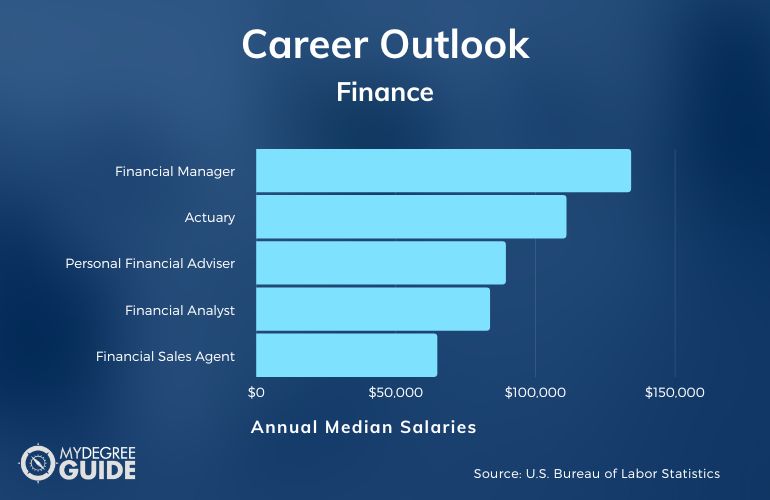
Are you considering becoming an insurance consultant? Do you have experience in a particular type of insurance consulting? You can find out more about this job in the article. These are the requirements and qualifications for insurance consultants. Find out more about licensing and professional liability insurance for insurance consultants. Learn also about exemptions from licensing. We'll also talk about compensation, which is generally higher than other positions in consulting. In addition, we'll explore the many benefits of becoming an insurance consultant. However, before you search for the ideal job, take into consideration the experience and qualifications that the consultant is interested in.
Qualifications for insurance consultants
Insurance consulting requires a deep understanding of financial concepts. While insurance consultants have to be familiar with the details of insurance policies, they also need to be creative and innovative to meet clients' needs. Advancement in this field is typically dependent on the company that an individual works for, though some companies promote from within while others require that an individual take on a new position. Acquiring new skills and increasing your responsibility can help you move up the ladder.
Education and training requirements for insurance consultants can vary from state to state, but in general, applicants must have a bachelor's degree or equivalent work experience in an insurance-related field. Many employers require consultants to have at least one year experience in the insurance industry. They also need to have exceptional interpersonal and computer skills. While certification may be required in certain states, it is not a requirement for all positions. In addition, many consulting jobs require extensive travel, which can lead to an increased risk of job instability.

Professional liability insurance
A professional liability policy, also known under the umbrella of errors and omissions coverage, is something that consultants are familiar with. This type of insurance protects your business from lawsuits brought on by unhappy clients. It also covers the costs associated with any claims. Even if there were no errors or oversights, sometimes a dispute may arise between a client and a consultant. Consultants who work with clients often will benefit from this type of insurance.
Professional liability insurance protects against a variety of errors and omissions which can result in economic loss. The insurance covers both accidental and intentional breach of contract. This coverage also covers legal fees and court costs if a client sues for negligence. Many policies will cover subcontractors. For professional services businesses, you may need separate insurance to protect your professional liability.
License Exemptions
Insurance Law requires that all licensed agents, brokers, or consultants in the field of insurance must continue their education. The requirements for continuing education are outlined in Section 2132. The CE requirements for long-term licensurees are not exempt, but there are special circumstances where exemptions may be granted. This includes ticket agents who sell travel insurance, agents who have a license that has not been issued by a state board of insurance, and those who hold limited licenses, such as those who practice only in California.
A certified insurance consultant might not receive any payment from an insurer or producer but they can still earn credits. This license is exempt from the federal investment advisory act. It may be used to serve any person, organisation, or corporation. After the license has been suspended or revoked, there is a 1-year waiting period. The licensee can no longer practice as a licensed person after the license is revoked. Additionally, licensees from different states can still practice these conditions.

Compensation
Although consulting businesses may seem safe, injuries and accidents at work can cause serious financial damage. Slips and falls, as well as chronic conditions like carpal tunnel syndrome, can cause serious damage. Even minor injuries can cause long-term damage. Therefore, it is important to have compensation insurance for your business's financial security. Here are the details about your business insurance coverage.
While workers' compensation is not required by law, it is important that you protect yourself and your employees. Even if you do not employ any employees directly, you are responsible to ensure their safety and well-being. Your health insurance policy does not cover injuries sustained by employees while they are working for you. Workers' compensation can help you to recover lost wages from illness or injury. You should consider workers' comp for your business as a valuable piece on legal protection.
FAQ
Is it possible to be a consultant?
A consultant is someone who assists you in achieving your goals by offering advice and suggestions on how to achieve it faster, cheaper, and so forth.
A consultant may help you solve problems, make decisions, or negotiate with others.
Consultants are often hired to help with specific tasks and projects.
In reality, consultants are generally paid hourly or daily rates and not per project.
What industries use consultants
There are many different types. Some focus on one particular type of business while others specialize in more than one area.
Some consultants work exclusively for private businesses, while others represent large corporations.
Some consultants also work internationally and can help companies around the globe.
How much do consultants make?
While some consultants make $100k+ per year, most consultants only earn between $25-$50k. An average consultant salary is $39,000 This includes both hourly and salaried consultant.
Salary depends on industry, experience, location, and type of contract (contractor vs employee). Also, whether the consultant is located in their office or remote.
Do I really need legal advice?
Yes! Yes. Many consultants will create contracts for clients without seeking legal advice. This can lead to issues down the road. If the client terminates an agreement with the consultant before the completion date, what are the consequences? Or what happens if a consultant fails to meet the deadlines in the contract?
It's best to consult with a lawyer to avoid potential problems.
How do I start an LLC consultancy business?
First, determine what you are looking to do as service provider. Then, make sure that you are qualified for these services. It may be a good idea to seek out someone who offers the services you need and observe their work.
Once you have a clear idea of what you are offering, you can start to identify your target market. If they aren't available, you may need them to be created.
Next, you will need to decide if you want to start your own business or hire others.
You could also consider starting your own consulting company by getting a license from the state, but this requires quite a bit of paperwork and legal fees.
Statistics
- 67% of consultants start their consulting businesses after quitting their jobs, while 33% start while they're still at their jobs. (consultingsuccess.com)
- Over 50% of consultants get their first consulting client through a referral from their network. (consultingsuccess.com)
- Over 62% of consultants were dissatisfied with their former jobs before starting their consulting business. (consultingsuccess.com)
- According to IBISWorld, revenues in the consulting industry will exceed $261 billion in 2020. (nerdwallet.com)
- WHY choose me: Why your ideal client should choose you (ex: 10 years of experience and 6-week program has helped over 20 clients boost their sales by an average of 33% in 6 months). (consultingsuccess.com)
External Links
How To
How do I find a good Consultant?
It is important to understand what you are looking for in a consultant before you can find one. What do you need them to do for your website? You want them to optimize the site for search engines to make it rank higher. Maybe you want someone to check on your current hosting provider and tell you if it is in need of improvement. Once you know what type of services you need, you should start looking at different companies. Many consultants claim that they can offer these services. But only a small percentage of them are able to deliver. So how do you go about choosing one? These are some things you should consider when choosing a consultant.
-
Get referrals. This is probably the best way to choose a consultant. You don't want to hire someone you've never heard of before because you'll likely pay too much. You don't want to work alongside someone whose reputation hasn't been established. It's great if you get recommendations from people you trust. However, even if this is not possible, you might still be able check reviews online. Find testimonials and case study examples from customers who have used your product.
-
Ask around. Many people aren't aware that they could benefit from hiring a consultant. People believe they don't have to make any changes because they are currently doing well. This is often not true. Even if you're getting great results right now, chances are that you haven't been keeping up with new trends or technologies. Relying on outdated methods will prevent you from maximizing your potential for growth. It's always worth asking around to see if anyone knows of a good consultant.
-
Check their qualifications. When you're looking for a consultant, it doesn't matter whether you're building a small blog or launching a multi-million dollar eCommerce store; you want to be sure that whoever you hire has the skills needed to handle your project. You must ensure they have the necessary skills and qualifications to carry out the tasks.
-
Find out the type of projects they specialize. While you might assume that everyone can handle everything, this isn't true. Some areas require specialized training and education. You wouldn't hire someone who can build a WordPress theme if they aren't experts in Drupal. The same goes for graphic design, programming languages, etc. It is important to inquire about the types of projects that they work on.
-
You should know their prices. As we stated, you don’t want to pay too little for a consultant. You also don't want too much. There are many types of consultants. Some charge hourly rates while others bill per project. You can save money by knowing upfront exactly what you will be paying.
-
Know what they offer. Are they offering free consultations or other services? Do they offer advice on setting up your system? Is there a guarantee that your site will rank higher after working with them? If you don’t like the information you receive during your consultation, you can cancel it without penalty.
-
Finally, find out if they offer discounts for multiple months or years. Many consultants offer discounted pricing over extended periods. While you don't necessarily need to commit for a whole year, you can still take advantage of any deals that they offer.